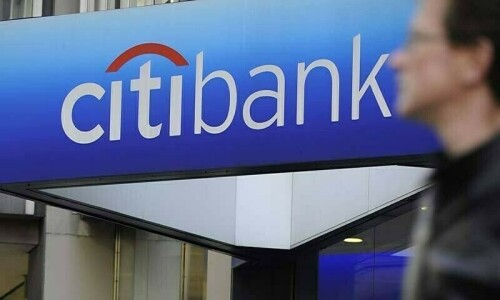BRUSSELS, Oct 13: Although the flurry of state rescues of banks in Europe is likely to weigh on public finances, many governments are hoping the moves will eventually pay off through dividends and other gains.
Following London’s leads, a growing number of European governments are lining up to set aside billions of euros in taxpayers’ money for propping up shell-shocked banks.
While the rescues will cost the public handsomely, governments will get new assets which they hope will eventually pay dividends or can be sold on at profit in the future.
“Everything depends on the purchase price and how prices develop afterwards,” said analyst Nicolas Veron at Brussels-based economics think-tank Bruegel.
“It’s not necessarily a bad investment for the governments,” remarked analyst Sylvain Broyer at French investment bank Natixis.
British Prime Minister Gordon Brown said that banks should suspend dividend payments to shareholders as long as they have not reimbursed the government.
Governments can look to the example set by Sweden in the early 1990s when it was hit by a deep crisis and banks were nationalised and later sold for a profit after their recovery.
The Swedish government remains the main shareholder of bank Nordea, Veron noted, remarking that “the money that is mobilised can be tied up for a long time.”
“It will take a long time for the banks’ shares to recover. However, the cost of doing nothing would have been infinitely greater,” said Mario Deaglio, an economics professor in Turin.
In the short term, European governments’ recently adopted rescue plans will only have a slight impact on public deficits, according to Bank of America economist Gilles Moec.
“Governments are going to issue new debt to take stakes in companies. At first it won’t show up. It’s the debt servicing that is going to weigh on the accounts, but only after a year or two,” he said.
To finance the rescue of Dexia and Fortis, Belgium for one is to borrow 12.9 billion euros which will add 500 million euros in annual interest payments.
Governments want to limit the impact on the public finances of plans to guarantee interbank lending by making banks pay for state support.
“We don’t want to hand a gift over to the bankers,” said Luxembourg Prime Minister Jean-Claude Juncker.
Nonetheless, the German government expects to have to pay five per cent of what it guarantees.
However, the burden of weaker economic activity on account of the financial crisis will probably cut deeper into public accounts than the cost of rescuing banks.
“Given the deterioration in the economic situation, there is going to be deterioration in the public finances,” said European Commission spokeswoman for economic matters Amelia Torres.—AFP














































Dear visitor, the comments section is undergoing an overhaul and will return soon.